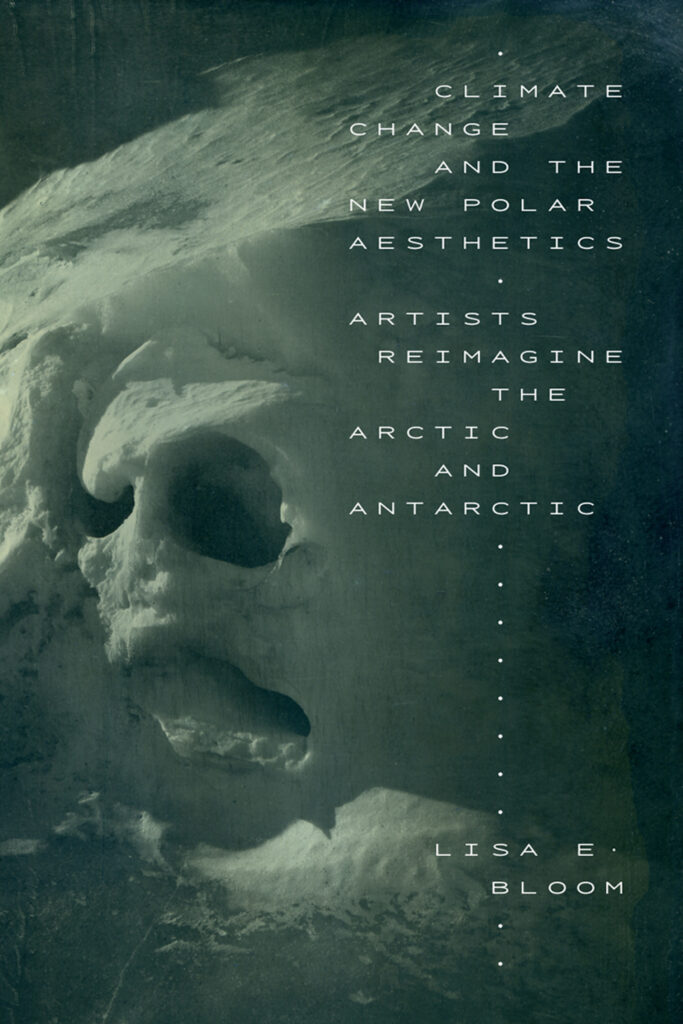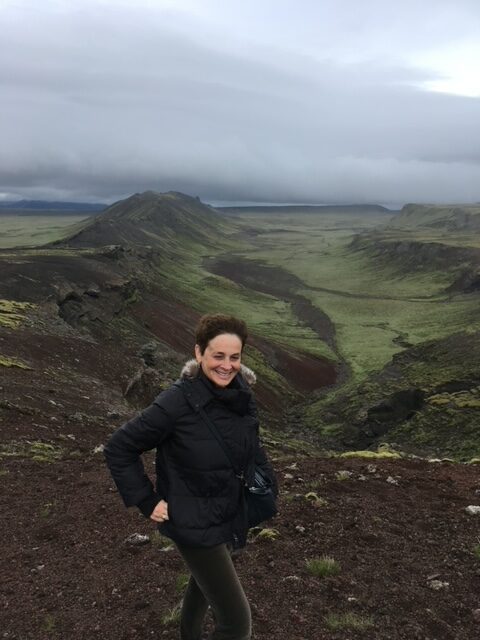
Lisa E. Bloom is an author and teacher who divides her time between Berkeley, California and New York City. Her interdisciplinary research and pedagogical interests cut across numerous fields including critical gender studies, media and film studies, cultural studies, visual culture and the history of art.
She is the author of Gender on Ice: American Ideologies of Polar Expeditions (University of Minnesota Press, 1993), which is one of the earliest critical books on the Arctic and Antarctic from a feminist perspective, and an edited anthology entitled With Other Eyes: Looking at Race and Gender in Visual Culture (University of Minnesota Press, 1999). Her third book is titled, Jewish Identities in U.S. Feminist Art: Ghosts of Ethnicity (London: Routledge, 2006) and her most recent book Climate Change and the New Polar Aesthetics: Artists Reimagine the Arctic and Antarctic came out in the fall of 2022. She has taught at numerous universities and art schools over the years and is currently at the University of California, Berkeley, as a scholar-in-residence at the Beatrice Bain Center in the Department of Gender and Women's Studies.
< NEW BOOK
In Climate Change and the New Polar Aesthetics, Lisa E. Bloom considers the way artists, filmmakers, and activists in the Arctic and Antarctic represent our current environmental crises and reconstruct public understandings of them. Bloom engages feminist, Black, Indigenous, and non-Western perspectives to address the exigencies of the experience of the Anthropocene and its attendant ecosystem failures, rising sea levels, and climate-led migrations. As opposed to mainstream media depictions of climate change that feature apocalyptic spectacles of distant melting ice and desperate polar bears, artists such as Katja Aglert, Subhankar Banerjee, Joyce Campbell, Judit Hersko, Roni Horn, Isaac Julien, Zacharias Kunuk, Connie Samaras, and activist art collectives take a more complex poetic and political approach. In their films and visual and conceptual art, these artists link climate change to its social roots in colonialism and capitalism while challenging the suppression of information about environmental destruction and critiquing Western art institutions for their complicity. Bloom’s examination and contextualization of new polar aesthetics makes environmental degradation more legible while demonstrating that our own political agency is central to imagining and constructing a better world.
Contributor: Elena Glasberg
Now available to order. Special offer: Use coupon code E22BLOOM to save 30% when you order from dukeupress.edu.
New Book’s Introduction is now available for free downloads at https://www.dukeupress.edu/climate-change-and-the-new-polar-aesthetics. Contact Laura Sell in marketing at Duke University Press for review copies: lsell@dukeupress.edu
The open access version of my book is now available for download on Duke University Press's Read site:
https://read.dukeupress.edu/books/book/3063/Climate-Change-and-the-New-Polar-AestheticsArtists
Good news! Anne Hemkendreis wrote the first review of my new book Climate Change and the New Polar Aesthetics Duke University Press where she claims it “is truly a must-read.” See the conversation in Art Journal about my new book that came out with me, Thyrza Goodeve, and El Glasberg. Also see the book reviews by Jean Bundy, Association Internationale des Critiques d’Art (AICA); Alice Oates, Cambridge University, in H-Environment; Barbara Ann Opar, Syracuse University, for the Arts Libraries Society of North America and Elizabeth Berman from Brown University, Journal for Postcolonial Studies (See PDF since the link reaches a paywall and doesn’t show the entire review), Paromita Patranobish’s review in the latest issue of the Journal of Ecohumanism, Isabelle Gapp's review in Art History, Jenna M. Coughlin’s review in Scandinavian Studies and the review by Robert Bailey & Pete Froslie in the College Art Association’s online Book Review.

